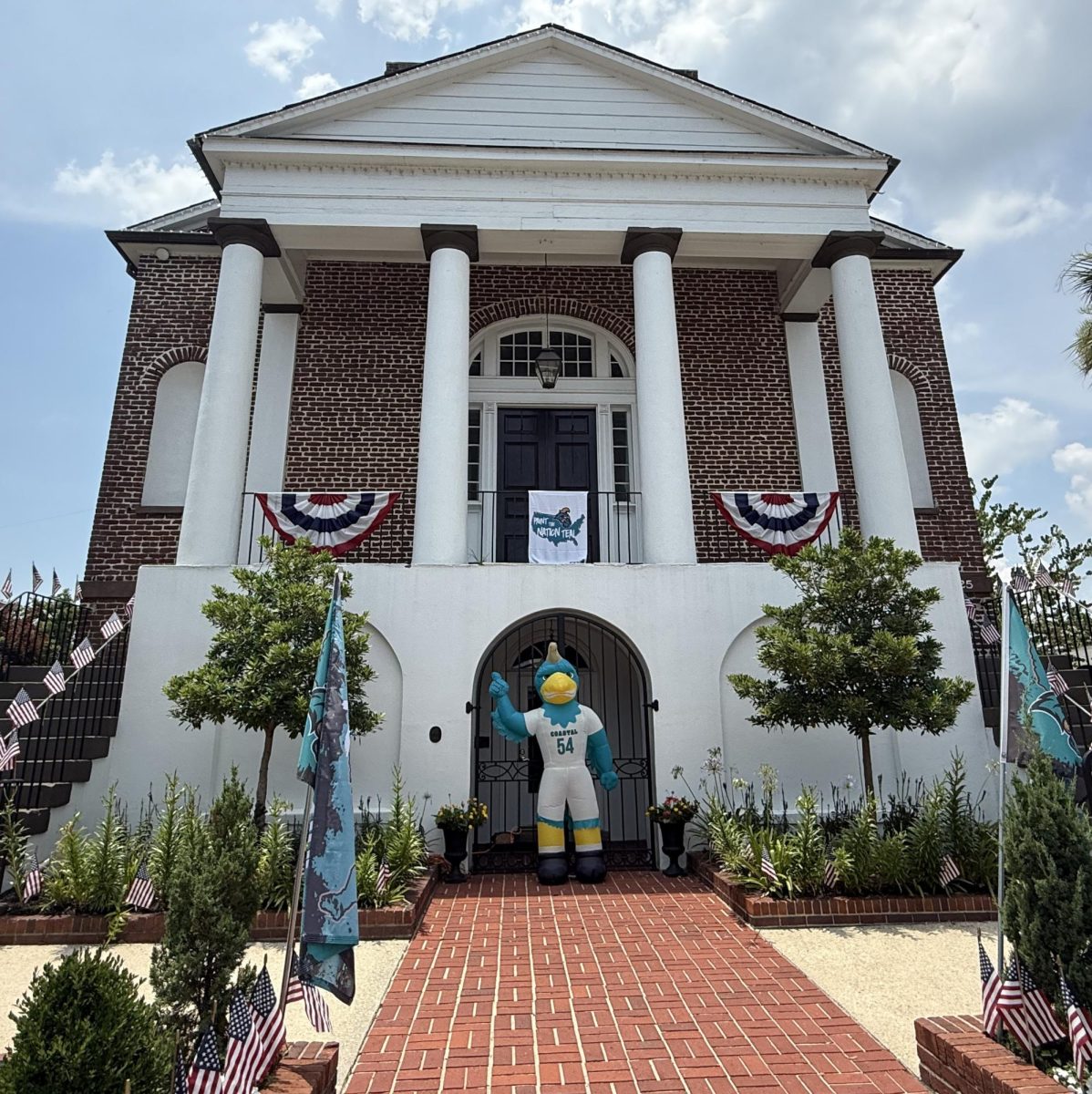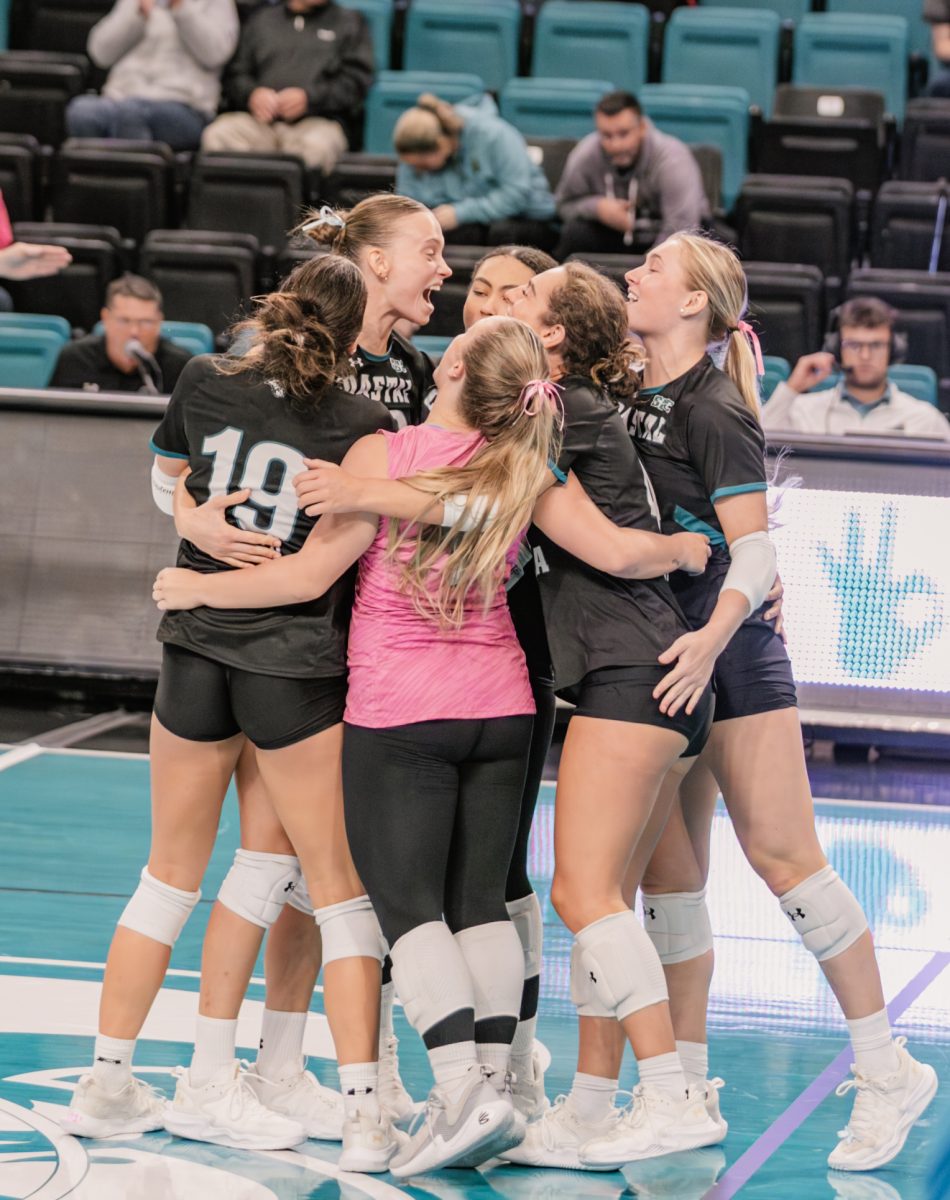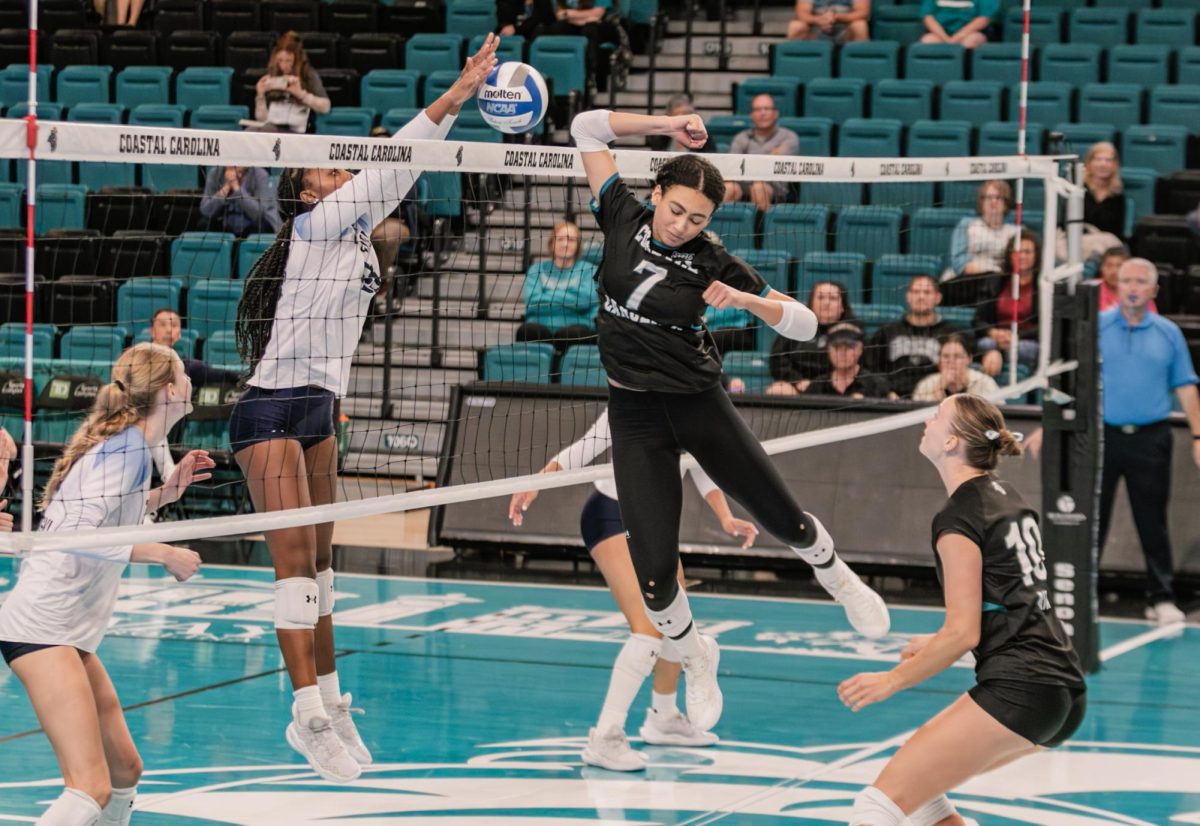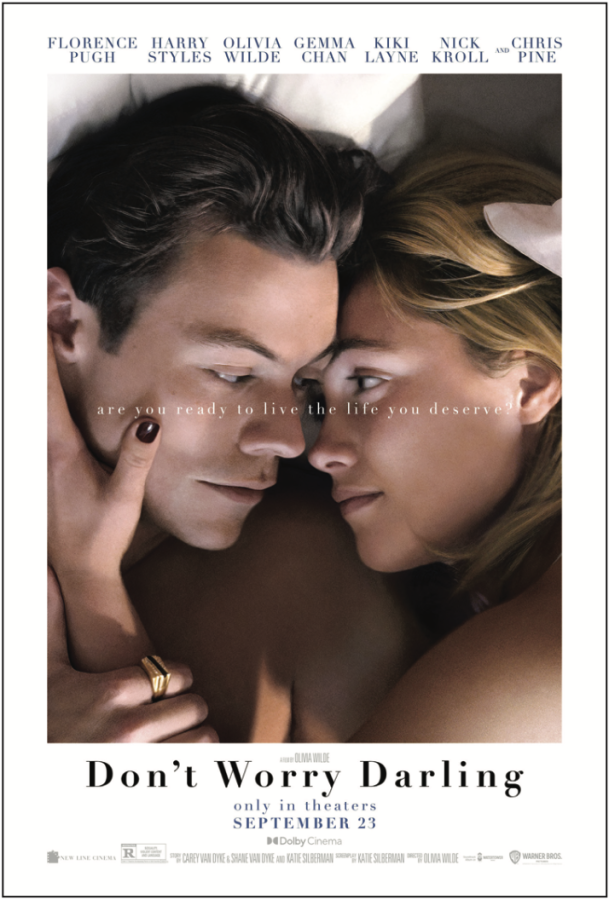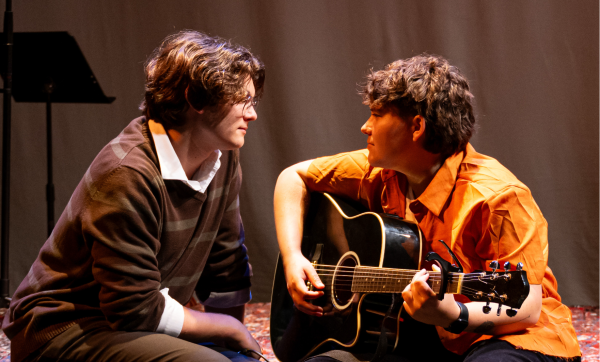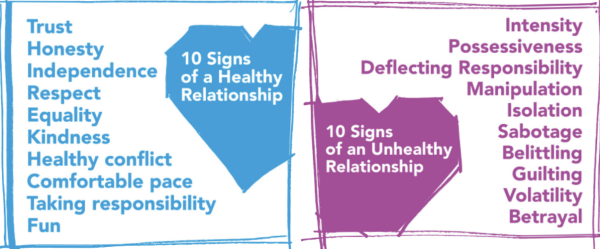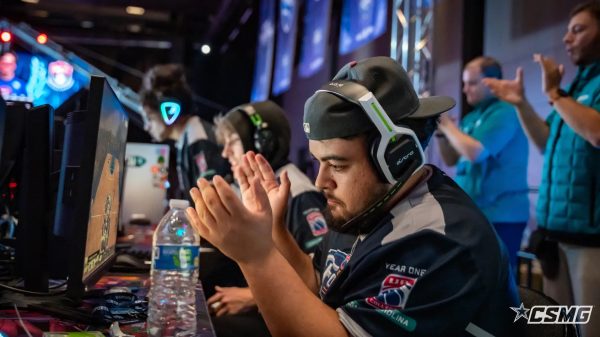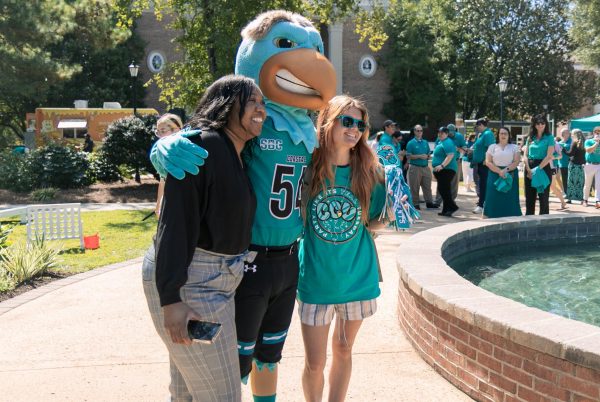Not much to worry about, darling: Olivia Wilde’s new movie outshines the gossip, but still falls flat
Olivia Wilde’s new film, Don’t Worry Darling, is the perfect psychological thriller to kick off the horror movie season as long as you don’t mind social commentary, plot holes or acting disparities.
Set in an idyllic company suburb, our protagonist Alice (Florence Pugh), begins to notice that this neighborhood is a
little less than perfect and possibly even dangerous when her friend, Margaret (Kiki Layne), begins exhibiting some erratic behavior. Alice begins to question the rules and routine of the town, including the head of the company Frank (Chris Pine), and her own husband, Jack’s (Harry Styles) intentions.
From the beginning, the audience begins to understand something is off from the spin of the camera and our characters’ drunken laughter. Here, we are introduced to the residents of the which Victory Project, a top secret company our protagonist and the other wives know nothing about, including where their husbands disappear off to during the day.
The narrative sets up a routine following Alice through a typical day: cleaning the house, socializing with the other wives, and dance practice. She seems happy and content with her life at the Victory Project.
But that doesn’t last long.
Things begin to shift in the Victory Project cul-de-sac from ideal to weird. The real tipping point is the block party where Margaret’s unusual behavior shows and announces to everyone in the party that they are being lied to. From then on, things spiral for Alice, putting a strain on her relationships and her ability to trust herself.
Ultimately, this disruption in domestic bliss is made to be an allegory for domestic violence. Without giving too much away, a lot of what is witnessed on screen can be symbolic telling of the struggles that occur when people try to leave abusive relationships, especially when they are disempowered. Throughout the movie, there is a lot of eye imagery and dancing pointing to themes of voyeurism and performance within a relationship.
Furthermore, as Alice begins to question her reality, she cannot garner much support and is often told that it is all in her head, paralleling the reality of victim blaming and psychological abuse.
By the end of the movie, the audience is left shaken but wanting more. The movie makes direct parallels to make the audience rethink their own experiences and interpretations of relationships that they have been or will be in.
It’s psychological horror. Thinking about the ending afterwards will make your stomach turn and think: how could someone do that to another human being?
Yet, you’re wanting more. There is a decent amount of plot holes and a desire for more backstory to possibly fill them. There are loose ends left hanging, but not in the sense that there might be a sequel or a cliff-hanger ending. It is more in the logic of the world the movie is built in. In the sense the director and writers suspend the viewers’ disbelief too far.
This, of course, was exasperated by the clear difference in acting between Florence Pugh and Harry Styles. In this movie, Pugh showed a significant amount more experience with acting than Styles. The audience could feel her emotions through the screen, she portrayed them as though they were her own.
Styles, in comparison, felt more like a pretty prop of a man rather than a compelling partner or potential antagonist. That too left the audience wanting more from him, wanting him to match Pugh’s emotional range and depth.
Overall, if you can get past the stark contrast in acting talent and a few loose ends, Don’t Worry Darling is the perfect psychological thriller to kick off the season.


